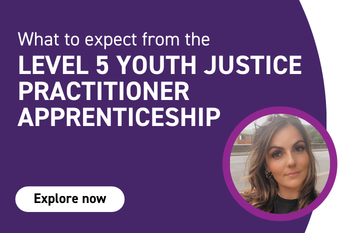The Domestic Abuse Act 2021 ushered in a significant number of legislative reforms, expanding the range of offences it covers and creating for the first time a statutory definition of domestic abuse, which recognises the full range of types of abuse, including coercive control, emotional, and economic abuse.
The aim is to ensure that domestic abuse is properly understood, considered unacceptable and actively challenged across statutory agencies and in public attitudes.
Importantly, the act also recognises that domestic abuse can impact on a child who sees or hears, or experiences the effects of the abuse and the first time recognises and treats children as victims of domestic abuse in their own right.
Against this background, organisations supporting victims and survivors of domestic abuse, such as Essex charity Next Chapter, have continued their commitment to ensuring all their staff are trained in the skills and competencies required to support victims of domestic abuse and to adapt to this new legislative environment.
To mark National Domestic Violence Awareness Month this October, we spoke to Next Chapter’s Beverley Jones about what the 2021 Act has meant for the delivery of frontline services and how the SFJ Awards Level 3 Award in Supporting Survivors of Domestic Abuse is enabling them to better support victims and survivors.
- Who are Next Chapter and how do you support victims and survivors of domestic abuse?
We have been supporting victims and survivors of domestic abuse in Essex for nearly 45 years.
We do this through our range of services which includes our specialist crisis refuge accommodation (including our specialist recovery refuge which takes women who have drug or alcohol addiction or dependency issues as a result of the abuse they have experienced) and specialist community support for adults requiring help and advocacy to secure their safety and recovery.
In addition to our services supporting children and young people experiencing domestic abuse in their own intimate relationship or their family setting and our recovery programmes which are designed to help all the people we work with secure their futures free from domestic abuse. - How has the Domestic Abuse Act 2021 changed the way you deliver services and how as an organisation have you had to adapt?
The Domestic Abuse Act hasn’t really changed the way we deliver services as we have always worked to support individuals affected by all forms of domestic abuse. However, the Domestic Abuse Act has created new responsibilities for many statutory agency partners aimed at providing victims and survivors with better access to support services, and we have been working alongside these statutory agencies to help them shape their responses and to provide the client support.
Alongside the new legal remedies available as part of the criminal justice response, one of the largest changes has been in respect of the new duties for local housing authorities.
These include more protection for victims in relation to secure tenancies, improving the standard of temporary housing and the requirement for victims and survivors and their children to be provided with support in safe accommodation. Our practitioners have been working hard to advocate for our clients in relation to their new rights when experiencing homelessness as a result of fleeing domestic abuse. - What did the Level 3 Award in Supporting Survivors of Domestic Abuse entail and how has this helped you better support victims and survivors of domestic abuse?
Our practitioners commit to a programme of learning which provides them with the theoretical knowledge in relation to domestic abuse, the law surrounding domestic abuse and the legal options available for victims and survivors and the theory, practical knowledge and skills required to support victims and survivors of domestic abuse.
The vocational nature of the qualification which combines the academic studies with the practical application and assessment of the learning through each module ensures that our practitioners understand how to use the theory of their learning and put it into practice on a day-to-day basis with the clients they are supporting.
The process then requires them to reflect on their learning and their practice and understand the impacts of the support they provide and to develop self-awareness in relation to their own strengths and areas for development.
All our practitioners have expressed appreciation for the opportunity to undertake the qualification and have shared with us that they know it has made them better at being able to support their clients.
Given our firm commitment to the qualification and the impact is has had for both our practitioners and our clients, we have been delighted to work in partnership with VQAS to assist SFJ Awards with the development of the Level 3 Award in Supporting Survivors of Domestic Abuse to ensure that it offers the very best learning and development for practitioners supporting victims and survivors. - What is your advice for other organisations supporting victims and survivors of domestic abuse when it comes to upskilling and training their staff?
We know that other organisations will feel the same passion for supporting victims and survivors of domestic abuse that we do, and I am firmly of the opinion that the Level 3 Award in Supporting Survivors of Domestic Abuse offers us the best opportunity to provide our staff with a qualification that enables them to provide the best support to our clients that they can.
By investing in increasing the knowledge, skills and confidence of our staff, we know that we improve the support that they provide to our clients, who remain at the heart of everything we do.
SFJ Awards’ Level 3 Award in Supporting Survivors of Domestic Abuse was launched in June this year to enable those that work with survivors of domestic to align their work with current practice and legislation.
Reviewed and updated in collaboration with VQ Assessment Services and Next Chapter, the qualification gives confidence to the sector that those who support individuals have up to date knowledge and skills.
To find out more visit: https://sfjawards.com/qualifications/community-and-social-justice/supporting-survivors-of-domestic-abuse/





